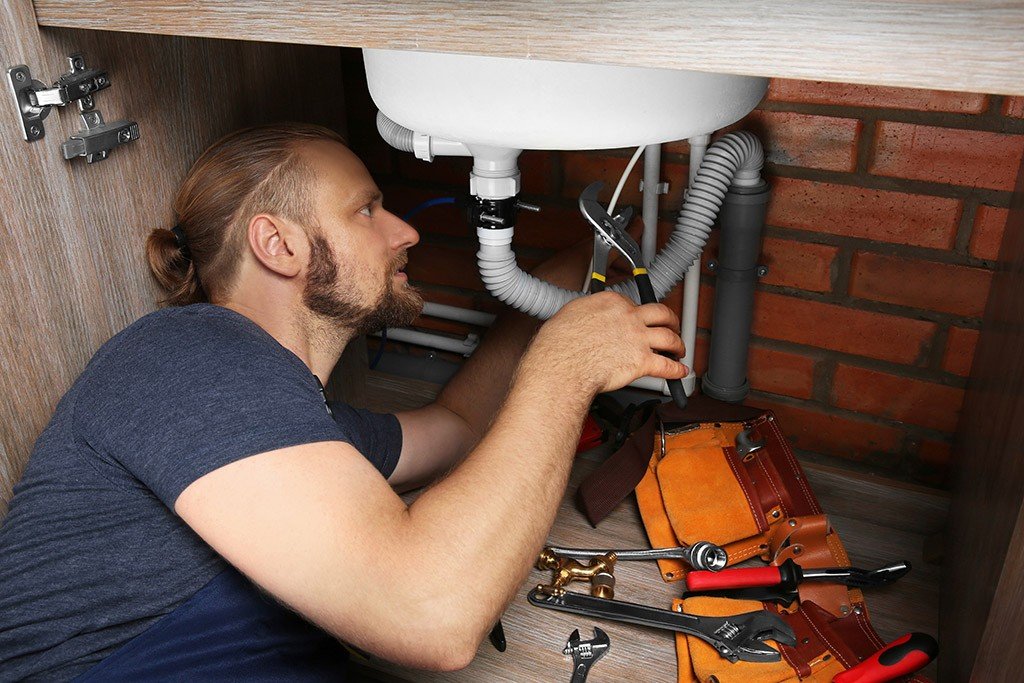Plumbing issues such as dripping faucets, clogged drains, and leaky pipes can lead to water waste, damage to your home, and higher utility bills. Knowing when to attempt a repair yourself versus when to call a professional plumber for help protects your home. Here are common plumbing issues and when to call a plumber:
Identifying Dripping Faucets
Worn washers, O-rings, or valve seat problems can trigger a leak. These parts can be replaced with simple tools and parts, making the job accessible to most homeowners. Repairing affected parts can prevent water loss. Remove the faucet handle to replace parts like washers, O-rings, or the valve seat. If replacements cannot stop the leak, call a plumbing expert. Leaks may be indicators of faulty pipes and valves in your home that are situated underground.
Recognizing Clogged Drains
Clogs are formed by the accumulation of debris in pipes. Grease, hair, soap scum, and bits of food clog water flow. To fix this, use plungers and drain snakes that have the capability of clearing clogs. Hot water is used to rinse cleaned drains to remove damaging buildup. If the clog does not dislodge with simple methods or if two or more drains are clogged simultaneously, have a plumber inspect the system for underlying clogs. They can look at harder-to-reach areas to inspect the buildup.
Spotting Running Toilets
Toilet tanks that constantly refill overuse water, leading to increased costs. Faulty flappers, worn-out handles, or issues with the fill valve are some of the possible reasons. First, check and replace the flapper or handle, if necessary. If the toilet is still running after addressing these issues, consider having an expert inspect the entire toilet plumbing system. Internal problems often require complex replacements, tools, or parts that exceed the scope of simple home repair skills.
Detecting Low Water Pressure
Showers and faucets losing pressure may be caused by mineral buildup, pipe corrosion, and concealed leaks within walls. Clear clogged aerators on faucets to recover normal flow. Call in a plumbing expert if the pressure does not recover. Detecting restricted or leaking pipes within walls requires professional tools and expertise. Have expert assistance to avoid repairs resulting in water damage.
Finding Leaky Pipes
Leaky pipes might be a sign of corrosion, pressure damage from excessive water pressure, or shifting pipes. Areas that are completely worn out require repair or replacement. Corrosion spreads fast as soon as leaks occur, posing a structural risk. Patch kits temporarily delay corrosion but don’t offer lasting repairs. Have a plumbing expert replace damaged pipes and safeguard your home from further damage caused by leaking pipes.
Hire a Reliable Plumber Today
Address plumbing issues immediately to avoid further damage to your home plumbing system. If you feel comfortable, tackle minor repairs, but contact an expert if simple fixes fail. Recurrent problems require professional assessments. Identify when to call a plumber to keep your home’s plumbing running smoothly. Reach out to an expert to unclog drains, fix leaks, inspect water heaters, and for other plumbing services. Plumbing professionals utilize specialized tools, such as video pipe inspection and hydro-jetting, to diagnose and resolve complex issues that aren’t visible or fixable with household methods.
